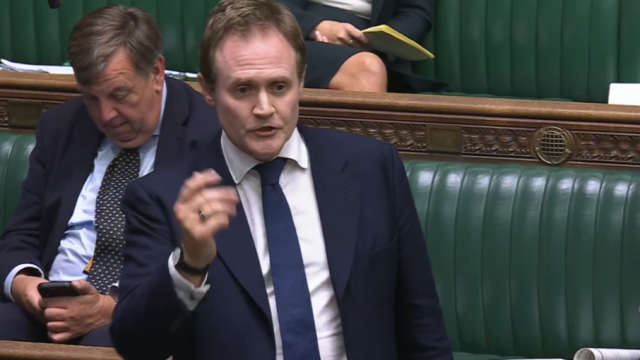When Leaders Dodge Questions, Democracy Suffers
On Wednesday during Prime Minister’s Questions (PMQs), a member of Reform UK raised a controversial but legitimate question regarding the banning of the burqa. Rather than addressing the topic directly, the Prime Minister dismissed the question outright. This action may seem politically expedient or even diplomatically calculated, but it represents a far deeper and more troubling issue in modern British politics: the increasing tendency of elected leaders to selectively ignore difficult or divisive topics, effectively bypassing democratic accountability.
This is not about whether one agrees with the suggestion made by Reform UK. It is about whether the leader of a democratic country should answer direct questions put to them in the House of Commons, especially when those questions come from duly elected representatives.
The Problem: In a true democracy, every issue raised in Parliament deserves a fair hearing. Parliament is meant to be a forum of ideas and national debate, not a curated press room where only popular or politically safe topics are addressed. When a Prime Minister chooses not to answer a question—particularly one that reflects the concerns or beliefs of a segment of the population—they are not merely sidestepping controversy. They are undermining the principle that all citizens, through their elected officials, have the right to raise concerns and demand responses.
This moment at PMQs was not an isolated incident. It is emblematic of a larger failure of political leadership across parties and institutions:
>>> The Sanitisation of Debate: Difficult or unpopular questions are being evaded, reworded, or completely ignored. Politicians often redirect, pivot, or offer generic platitudes instead of real answers.
>>> The Rise of Political Branding Over Substance: Leaders increasingly treat politics as performance art. They prioritise optics and soundbites over meaningful engagement. PMQs, which should be a cornerstone of accountability, is often reduced to theatre.
>>> Marginalisation of Non-Mainstream Voices: When questions from smaller or newer parties are dismissed or belittled, it not only discourages political diversity but actively disrespects the voters who elected those representatives.
>>> Censorship Through Silence: Refusing to engage with a question is a form of passive censorship. It denies legitimacy to the topic and disenfranchises public discourse.
>>> Undermining Democratic Confidence: Repeated instances of evasion and dismissal foster public cynicism. Citizens begin to believe their voices do not matter, and disengagement from democratic processes increases.
Real-World Impacts:
>>> Social Polarisation: When legitimate issues are suppressed, they do not disappear—they fester. Suppressed viewpoints seek alternative platforms, often radicalising in echo chambers where conspiracy and extremism flourish.
>>> Erosion of Political Engagement: Voter turnout decreases. Young people and minorities, already underrepresented, may further disengage, feeling that politics is a closed loop for the elite.
>>> Legitimacy Crisis: Governments risk losing moral authority when they cherry-pick what they will or won’t address. This selective accountability erodes trust not only in leaders but in the system as a whole.
>>> Weakening Parliamentary Integrity: Parliament should be a place of robust, open debate. If MPs know their questions will not be answered based on political whim, the integrity of the entire process is compromised.
Key Questions That Must Be Asked:
>>> Should the Prime Minister be allowed to dismiss any question raised in Parliament without explanation?
>>> Does this set a dangerous precedent for ignoring opposition voices?
>>> What safeguards exist—or should exist—to ensure that controversial topics are debated respectfully rather than suppressed?
>>> How do we ensure that our political leaders remain answerable not just to their base, but to the entire electorate?
Proposed Actions:
>>> Public Awareness Campaign: Use this listing to generate awareness on social media and in civic forums. Encourage people to watch PMQs critically and write to their MPs demanding better accountability.
>>> Parliamentary Reform Advocacy: Advocate for changes to PMQs rules that require some level of response to every MP’s question, especially those raised on behalf of constituents.
>>> Media Engagement: Reach out to journalists, broadcasters, and political commentators to keep the spotlight on evasive political behaviour and hold leaders accountable in post-PMQs analysis.
>>> Civil Society Mobilisation: Work with civic groups, legal bodies, and political reform organisations to study the impact of unanswered parliamentary questions and propose structural changes.
>>> Educational Campaigns: Develop materials that teach young people about the importance of parliamentary engagement and how silence in politics can be a form of suppression.
Conclusion: The question asked by Reform UK was controversial, yes—but controversy is not the enemy of democracy. Suppressing it is. Political courage means confronting difficult questions, not ignoring them for convenience. If we truly believe in democratic integrity, then we must demand better from our elected leaders—starting with the simple act of answering the questions they are asked.
Because when leaders stop answering, the system stops working.





